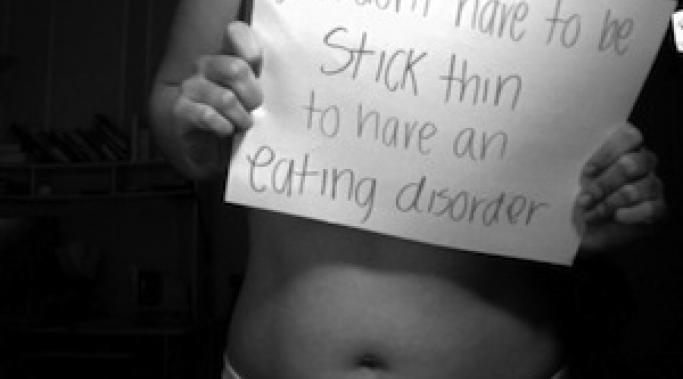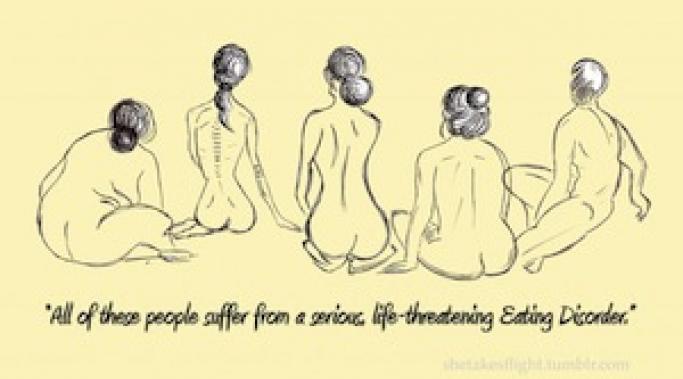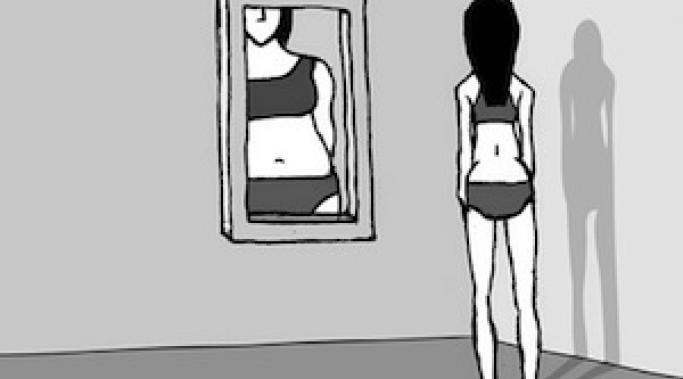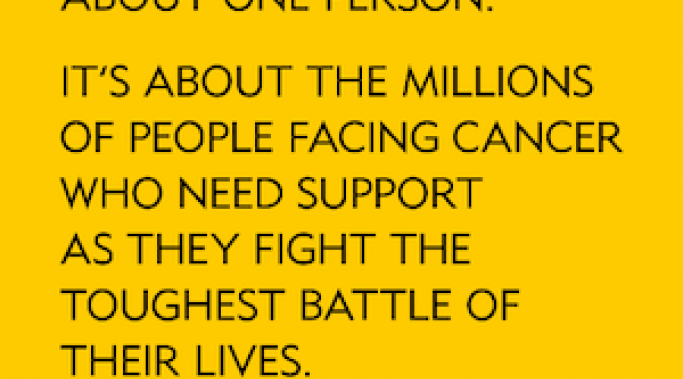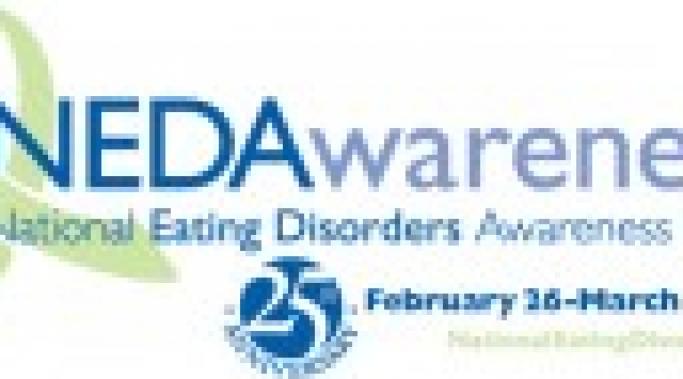Admitting I had a problem was my first step to bulimia recovery. With time, wisdom, and experience, I’ve come to terms with my diagnosis and accepted that bulimia did not define me. My acceptance of the diagnosis was a starting point, a breath of fresh air, much like walking out of a room in college when you decide this party’s over, I’m heading home. As uncomfortable as that experience was, being diagnosed, for me, felt like coming home.
Eating Disorder Stigma
Warning: This specific article is graphic and may be triggering.)
My bulimia was a pallet of colors. As dreamy as that could sound, this wasn’t as innocent as a coloring book, rather colors were my guide.
As I mentioned in my post during National Eating Disorders Awareness Week, over half of eating disorders in the United States are diagnosed as "Eating Disorder - Not Otherwise Specified" or ED-NOS. It's a tricky thing to pin down, ED-NOS is. The manifestation of this eating disorder is as varied as its many sufferers and carries a stigma and set of problems all its own.
So if I'm diagnosed with ED-NOS - what the heck does that even mean? What does it mean for my recovery? What does it mean for my access to eating disorder treatment?
Yeah, okay. It's National Eating Disorders Awareness Week. What's there to be "aware" of? We all know that eating disorders are for vain, pretentious teenage girls. It's just a stage. They'll get over it. And it's not like being "too thin" is going to kill you. That's what everyone believes, right? Everybody has heard of eating disorders at this point, so why are we taking a week to specifically "make people aware"?
This week, February 24-March 2, is National Eating Disorders Awareness Week in the U.S. In this video, I share the ideas behind NEDA Week, as well as how the stigma of eating disorders relates to the Stand Up for Mental Health Campaign on HealthyPlace.com.
I've been listening to some audio teachings by Brene' Brown, a leading researcher on the subject of shame. Shame - that feeling of not being "enough," not being worthy - is something that we with eating disorders are all too familiar with. Brene' says early on, "If you don't claim shame, shame will claim you."
How many of our eating disorders and addictions began out of a place of shame? How many of us have allowed our shame to control our lives and for how long?
When I took over this eating disorder blog, I did so with two purposes in mind. First, to offer support to those who are also in recovery from their own eating disorders and educate them on how to make their recovery stronger. Second, to help the friends and family of those with eating disorders better understand what their loved one is going through. I think to this point, I have done a decent job on the first purpose. However, my own fear of "too much" self-disclosure has kept me from accomplishing the second.
To be honest, it's hard to put into words just what kind of hell living with an eating disorder is. Especially in the midst of it, when your head is spinning and words seem difficult to grasp. As a result, most of my writings from my worst days of my eating disorder seem to ramble and go off on tangents and almost always ended with the conclusion that I wasn't really sick, I was just crazy and I should just kill myself for being such an attention-seeker.
Or, “What Lance Armstrong Has to Do With My Eating Disorder Recovery.”
I was listening to NPR last weekend and they were, of course, talking about the Lance Armstrong interviews with Oprah, in which he admits to doping during the time which he won his seven Tour de France titles. (I wish I could find the link to this report, but after many hours of searching the NPR archives I couldn’t find it.) At one point during the segment, they quoted a psychologist whose point, in short, was that Lance Armstrong probably thought he was doing the best thing by lying about doping.
I was diagnosed with anorexia nervosa when I was forty-two, although I've wondered if I didn't have at least vestiges of the disorder when I was a young adult. For a long time, I tried hard to hide my condition or at least deflect concern about me onto others . . . anyone, as long as people didn't guess my secret: that I was anorexic.
I should have saved myself the trouble, because the majority people I knew figured out what was wrong with me long before I would even admit it.
I often wondered what would have happened if either:
a. I had talked to someone when I first began restricting at the age of eighteen, or
b. If I had chose to keep silent about my eating disorder.
I know — two different scenarios.
National Eating Disorders Awareness Week 2012 is this week. This year's theme is "Everybody Knows Somebody."
According to the National Eating Disorders Association, ten million women and up to one million men have anorexia or bulimia, and millions more struggle with binge eating disorder.
That means that you most likely know somebody with an eating disorder.


